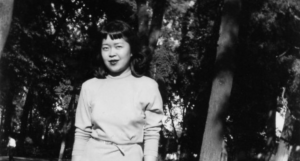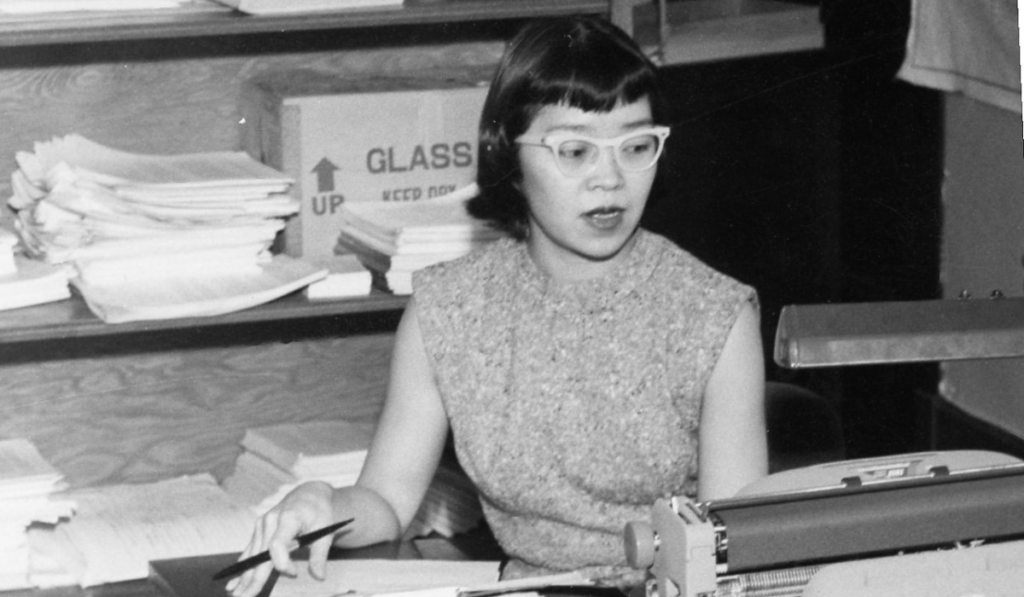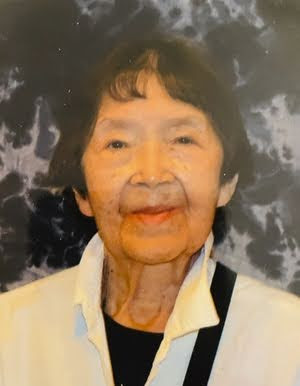
Born and raised in Washington, Kay Hashimoto (BA, journalism, 1952) dreamt of becoming a journalist, setting her sights on UW as the place to realize that dream. After graduating high school in 1946, Kay worked for two years to earn the money she needed for tuition and to help her family get back on their feet after being forcibly incarcerated in internment camps in California and Wyoming during WWII, along with thousands of people of Japanese descent throughout the West.
Kay majored in journalism at the University of Washington, and after graduation launched a career writing and reporting in a variety of venues, including the local newspaper in Ukiah, California, a daily news radio show, and writing press releases for the Japan-America Society in Seattle. Kay was also one of the founding members of the distinguished Seattle Cherry Blossom Society. Later in life, she worked for and retired from the Seattle bureau of the Environmental Protection Agency, receiving numerous recognitions for her work related to the Freedom of Information Act.
Kay passed away peacefully at the age of 94 in February of 2023, surrounded by her three children Gregg, Jill, and Lynn Hashimoto. The siblings recently made two generous gifts to the UW Department of Communication — including an endowed scholarship to support students — to honor their mother’s legacy as a first-generation college graduate and trailblazer as a woman of color working in the field of journalism in the mid-20th century.

Kay’s daughter, Lynn Hashimoto, recently shared more about Kay’s story and her time at the University of Washington.
How did Kay reflect on her college experience? Did she ever talk about what it meant to be a first-generation graduate, either for her or her family?
Kay loved her college experience — she loved studying journalism, and she also loved expanding her horizons and meeting new people (many of whom became lifelong friends). She didn’t talk much about the hardships her parents endured, but she knew they had suffered through the Depression and WWII. She wanted to honor them by doing well in school and building a career so that she could take care of them in their later years. I think that part of the reason Kay may have chosen journalism was because her mother was a poet (she wrote Japanese tanka poetry under the pen name Yukari Tomita) and understood the power of words, including to provide comfort during stressful or trying times.
What did it mean to Kay’s family for their mom to be a first-generation graduate?
Kay was and remains the ultimate role model for all of her children. Making her way through four years at the UW, graduating, and finding work in journalism in the late 40s and early 50s — only a few years after the end of WWII — were huge accomplishments, and showed a lot of grit and determination. For us kids, what was most inspiring was that she never complained about the hurdles she encountered, but faced each day with positive focus.
What inspired Kay’s children to honor her legacy with a gift to the Department of Communication?
My two siblings, Gregg and Jill, and I are excited to make two gifts to the UW Department of Communication as a way to honor our mother, Kay, because her experience at the UW and the degree she received from the university gave her critical skills and enabled her to pursue her career dreams. Kay would have loved to help others gain access to the opportunities the UW provided to her, so my siblings and I are honored to be able to do so in her name. In addition, we miss our mother dearly, so we are happy that our gifts to the UW will allow Kay’s legacy to live on in a tangible way.

Alumni such as Kay Tomita Hashimoto are a key part of the Department of Communication’s legacy as a program devoted to the power of ethical journalism and rigorous storytelling. The Department is honored to receive funds in her name to support our students and our research mission. This gift will make a tremendous impact on the journeys of generations of future journalists and professional communicators.
